In this summer holiday, teachers and students of the Sustainable Urban System Program (SUSPⅢ) under “SCU Global Horizons” Overseas Study Program hadin-depth discussions and exchanges with those in Stanford University. 20 SCU students of SUSP team have conducted case studies and shared learning experience of sustainable developmentwith their peers there.
SUSP is an interdisciplinary project jointly established by Sichuan University and Stanford University. Students from various disciplines worked together with their advisers as a team and conducted research based on the global vision and localization initiatives of sustainability. In this program, SUSP team carried out researches and demonstration projects in five areas, namelygreen campus building, waste sorting, survey on students’ awareness of sustainability and their corresponding behavior, energy conservation at dormitory and digital campus. During the exchange, SCU students shared their research results. They were also were keen to know what Stanford University has done to promote sustainable development.
Then what did they learn there?
Speak out and listen carefully
As the primary task of SUSP team was to exchange views with SUS team at Stanford University, reports began on the second day upon their arrival. Stanford University’s SUS team introduced their important work over the past year. Under the theme of “Coastal Flood Risk in the Bay Area”, they focused on the Bay Area where the Stanford University is located. Specifically, SUS team did research on the five aspects caused by flood control mechanism, namely direct loss, facility damage, traffic disruption, interference of business activities and social vulnerability. While SUSPIII team, under the theme of creating a more sustainable SCU, undertook researches into the following five areas: questionnaires, waste collection, green building, conservation of electricity and campus information systems. Through analysis, SUSP team has embarked on campaigns aimed at improving sustainable campus building at SCU--- greater efforts are being made.
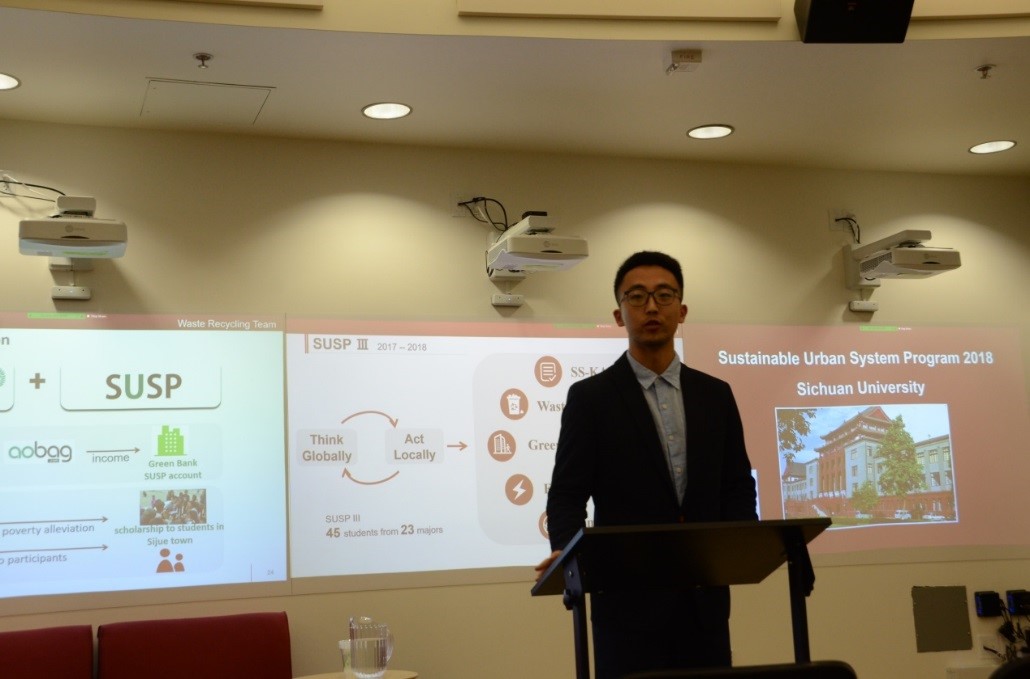
Student making a report
Both teams took a keen interest in their counterpart’s work. During the exchange, we found that Stanford University students studied the issue from different or even unexpected angles and completed corresponding modeling and analysis. We can learn from them how to choose a novel topic, conduct serious and meticulous research as well as effective and efficient good teamwork.
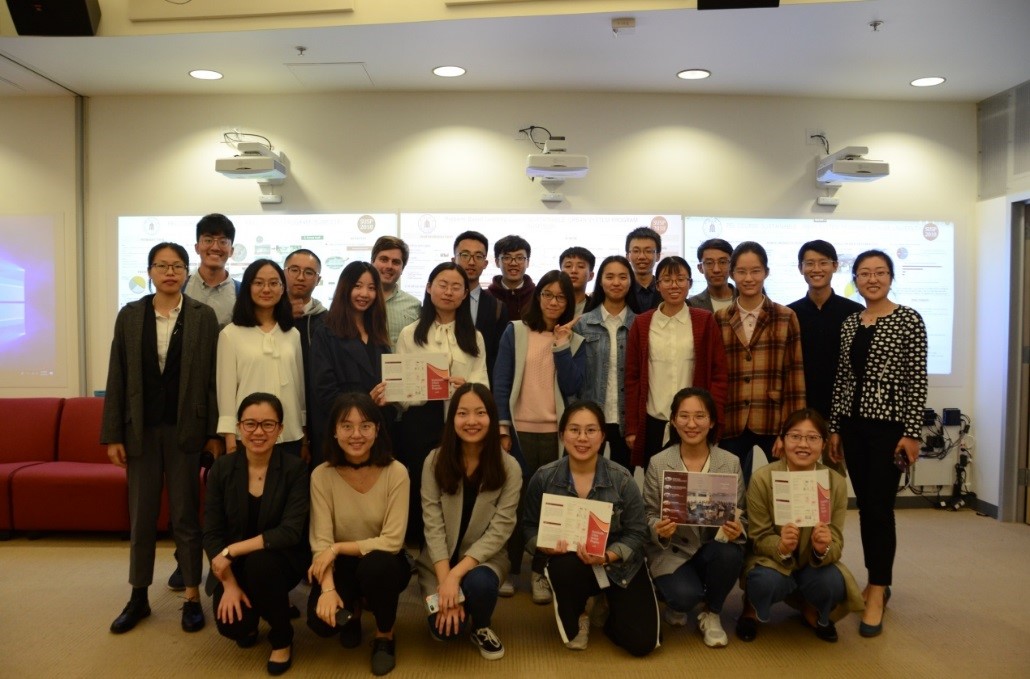
Group photo at Stanford meeting room
Afterwards, three teachers of Stanford University delivered wonderful lectures to SUSPIII team, which centered on their own understanding about what sustainable development is and their efforts to promote it. First, Jeffrey Ball showed us around Stanford’s oldest student apartment Roble Hall, where sustainable development has been actively promoted in energy system and greening. After that, Sara introduced Stanford’s “My Cardinal Green” system through which everyone can perform suggested actions to earn points and get rewarded, thus encouraging more to go green. Finally, Derek said that further progress could not be made unless we could find a way to quantify and evaluate efforts for sustainable development. He also told the difference between “sustainability” and “resilience”, encouraged us to maximize individual efforts to achieve significant results in our daily lives.
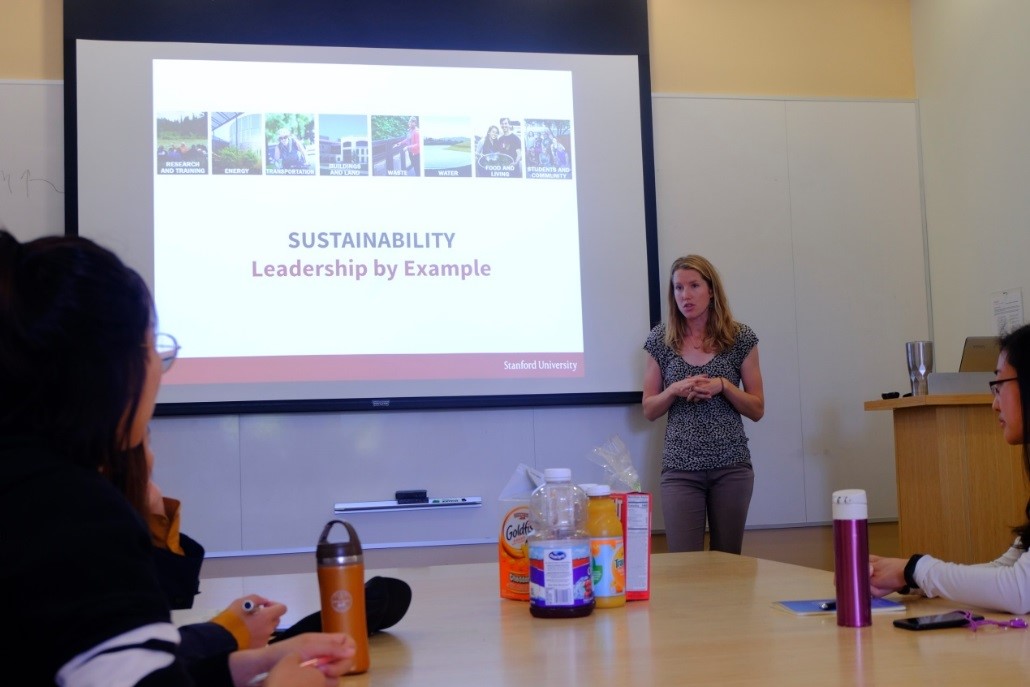
Sharing from Sara
At Stanford University, SCU students heard different ideas about sustainable development and gained a better understanding. They betteraccept their whole-year hard work and remain committed to making more sustainable practices after returning to SCU. Besides, they have got to know how to think broadly and communicate effectively. This trip did benefit them a lot.
Free “exploration” on the “island” of sustainable development
During the exchange, SCU students learned more details about sustainable development at Stanford University and the University of California, Berkeley. At the campus of Stanford University, Brian explained how they gave full consideration to sustainability when Y2E2 was built. It was architects’ ingenuity that made this building energy-saving. At Stanford University Central Energy Facility, we learned how Stanford covers its huge energy needs effectively. At PSSI (Peninsula Sanitary Service, Inc.), we saw exactly how they recycle waste in an effective way. At William and Cloy Codiga Resource Recovery Center, we learned about Stanford’s wastewater treatment facilities and systems as well as the new concept of “innovation and entrepreneurship”. Finally, we experienced the harmonious development between man and nature at Stanford’s organic farm.
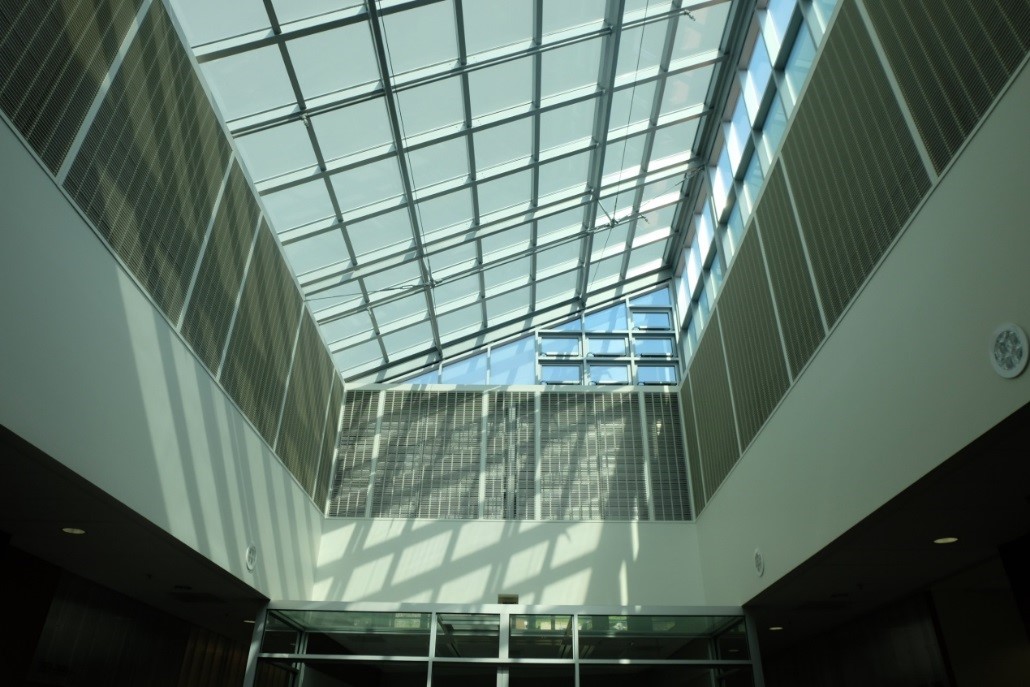
Y2E2’s top floor with adjustable room temperature
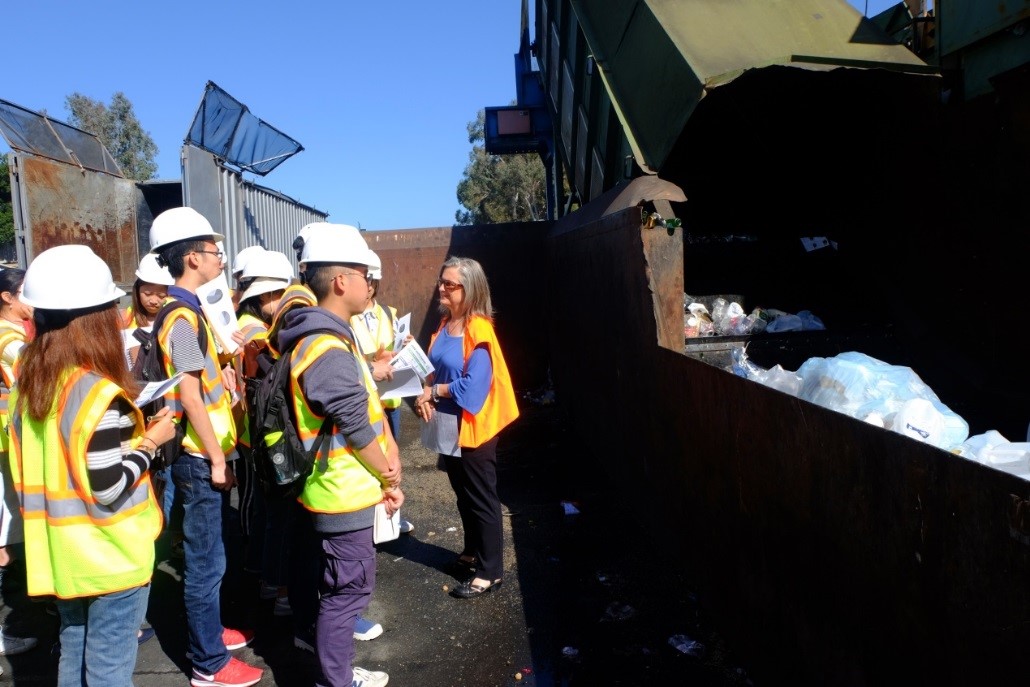
Learning at PSSI
See more, hear more and learn more
Through this trip, SCU students got the chance to walk out of school and go to more places to meet more people and know the world better. At the headquarter of Stanford Research Institute International (SRI), Claude delivered a speech that gave us a deeper understanding of “innovation”. We also visited the world-famous architects S.O.M whose staff elaborated the idea of sustainability in CBD’s design planning, both in Chengdu Tianfu New Area and the Chongqing Two Rivers Center. At the Sherwood Design Engineers Studio, staff also explained sustainability in their city planning and engineering design. Under the theme of “Three Revolutions and the Future of Transportation, A Call to Action”, Professor Dan Sperling talked about how to make people accept car sharing and give up personal car ownership as well as how to propose an aggressive policy to solve the problem of parking. In this lecture, students actively participated in discussion and shared different opinions.
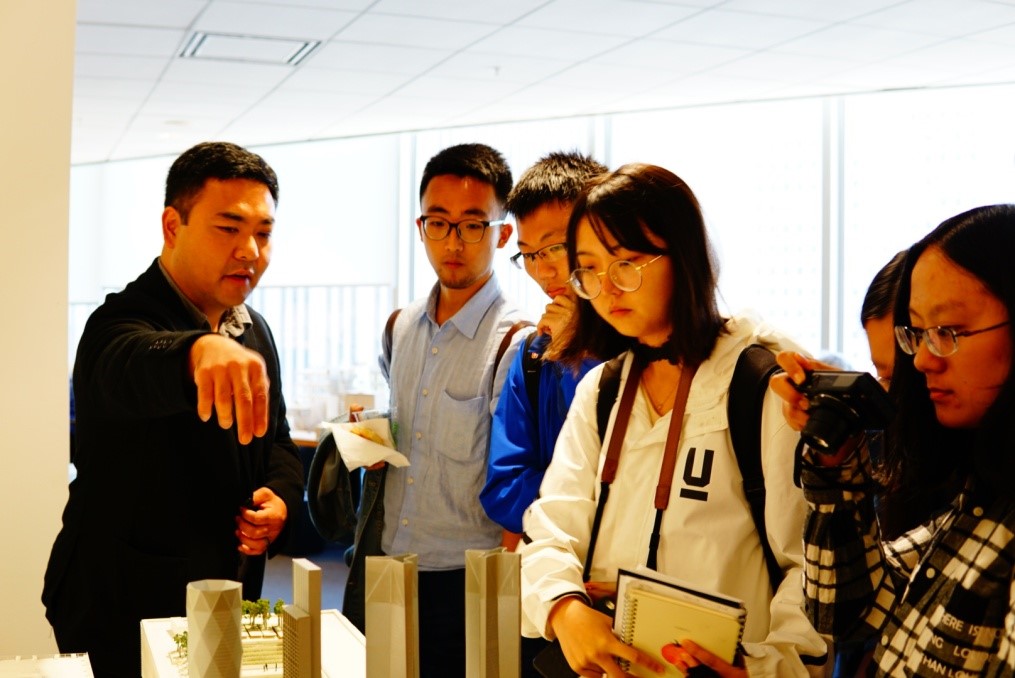
11SOM employee explaining green building to students
Students’ impressions
“Over the past ten days, we have got to know how the students from the world first-class universities learn and work. They are proactive to express ideas, confident and decisive to take actions. This is exactly what Chinese students could learn from. Abroad, students participate actively in class and raise questions whenever they have ones. While in China, it is teachers rather than students that lead the class. Due to the lack of independent thinking, they barely question what their teachers have said. I hope I will be more active both in class and open discussion. Only when we speak out and communicate actively with others can we know more.”
“Inspired by Derek, I am considering being a one-day vegetarian every week so that I can make little efforts for the world’s low-carbon and sustainable development. At the University of California, Berkeley, students took full advantage of sustainable trash can and solar power. I think we can also carry out home-grown sustainable activities at SCU. But just as Berkeley’s students have mentioned, making sustainable practices is not easy. I am sure that we need to make greater efforts.”
“ChuanDa Global Focus” serves a great platform for teachers and students of SUSPIII team to know the world. Through reciprocal sharing, learning and field visits, the program enables them to fully understand how students at Stanford University and American young elites at large view sustainable development and what actions they take correspondingly. In addition, all SUSP members have been trained in cognitive competence and social practice. This trip to Stanford University also enriches students’ experience, broadens their vision and reflects their excellent teamwork. In the years to come, SUSP team of Sichuan University will stay committed to achieving sustainable development and fulfilling the purpose of “Think Globally, Act Locally”.


